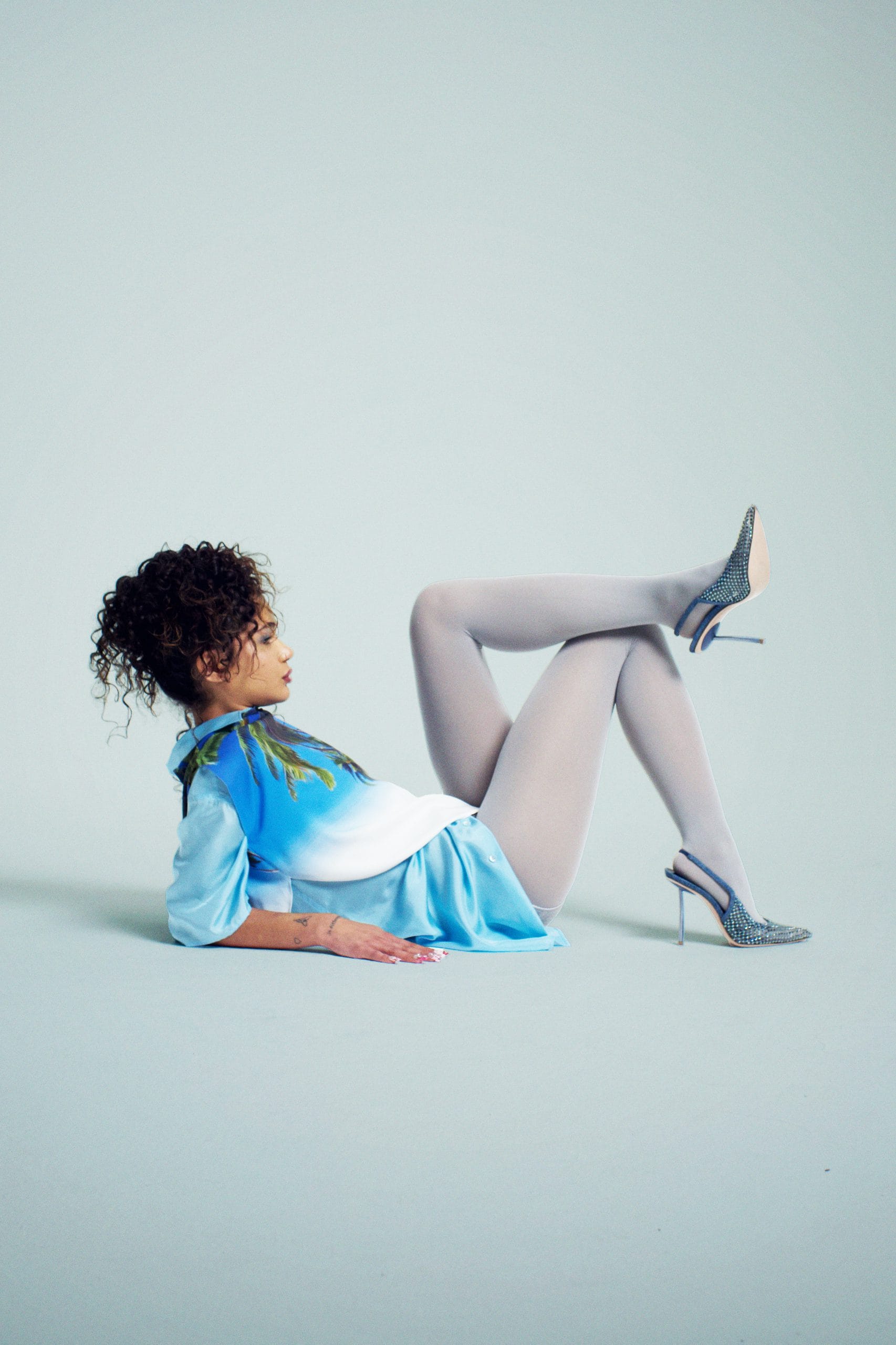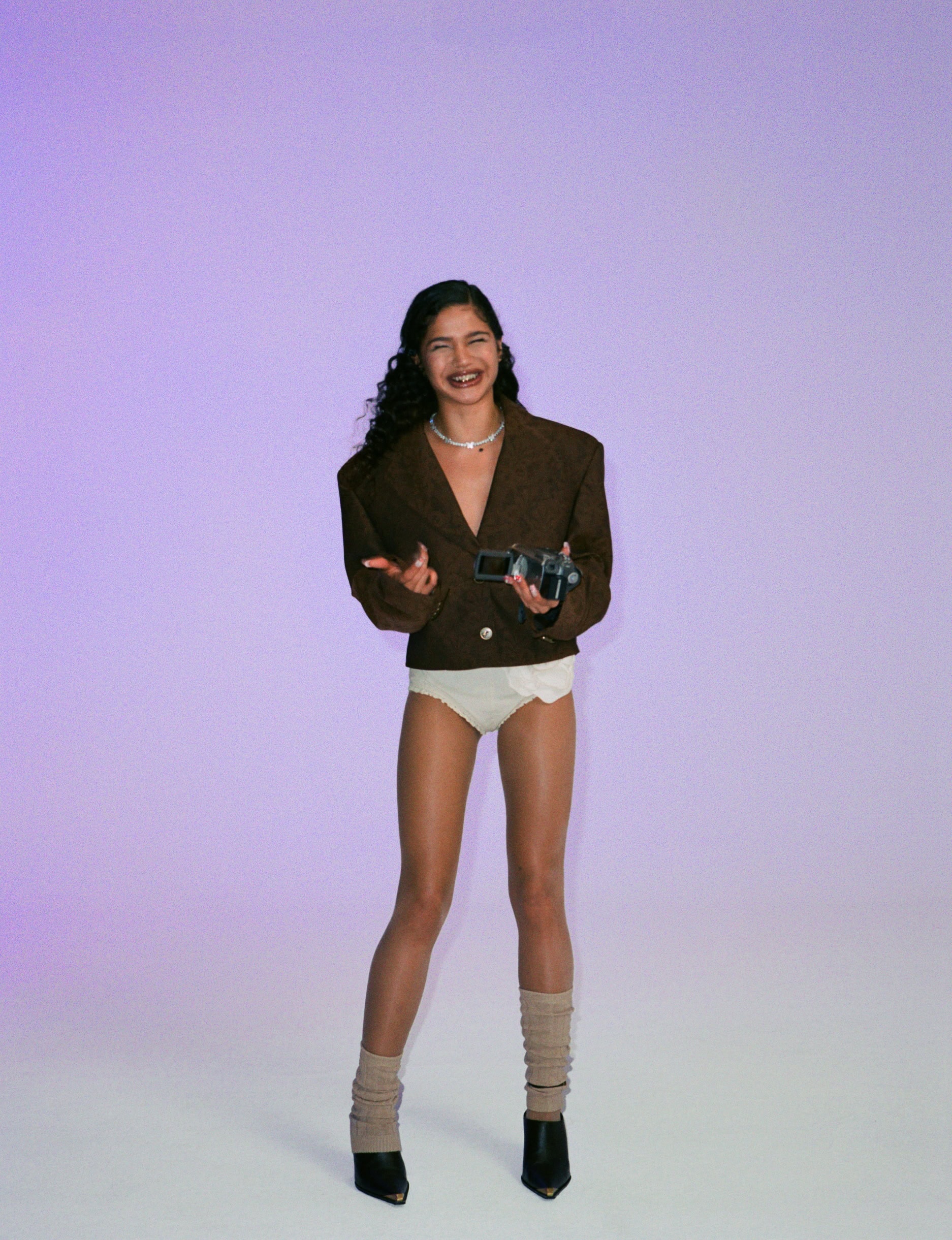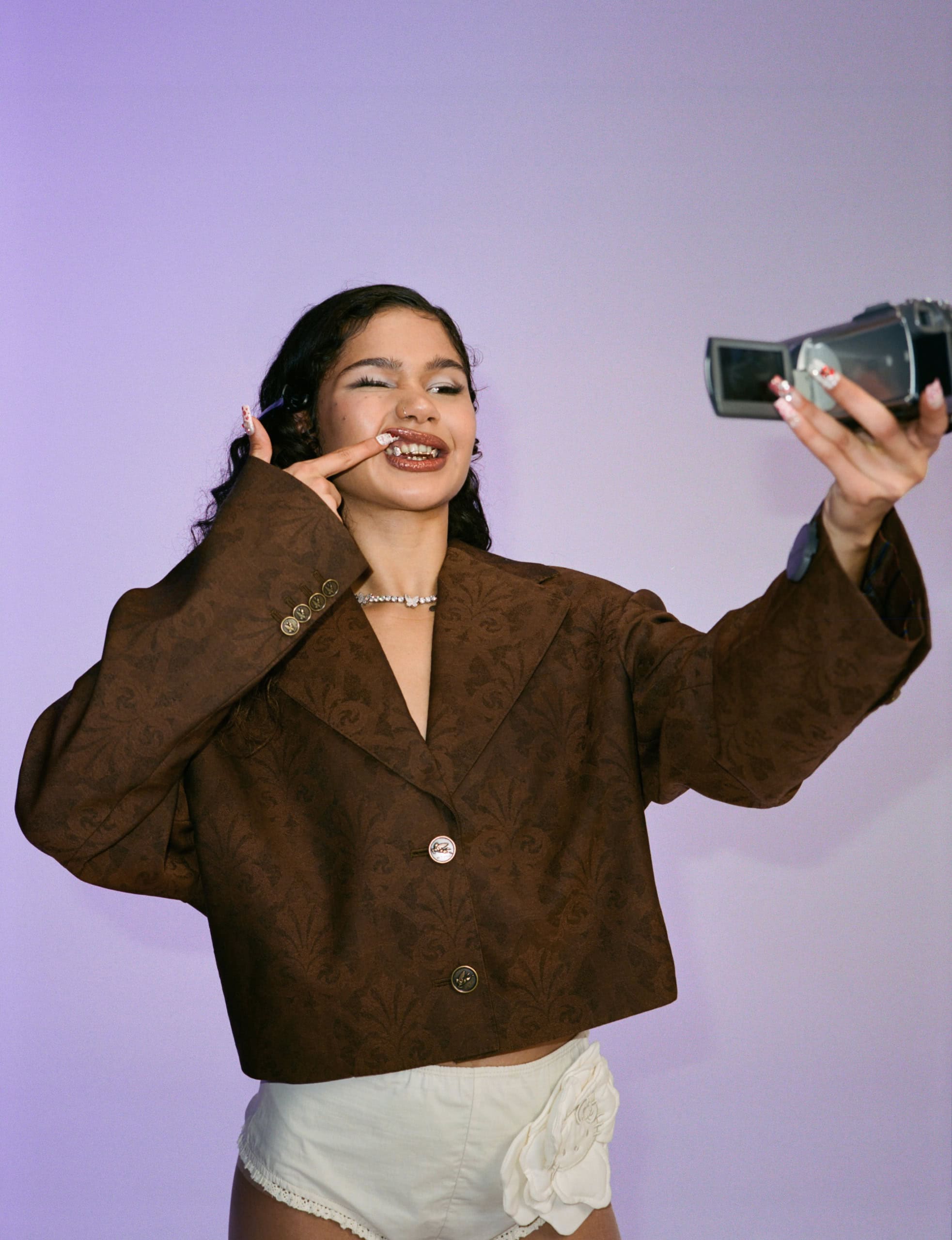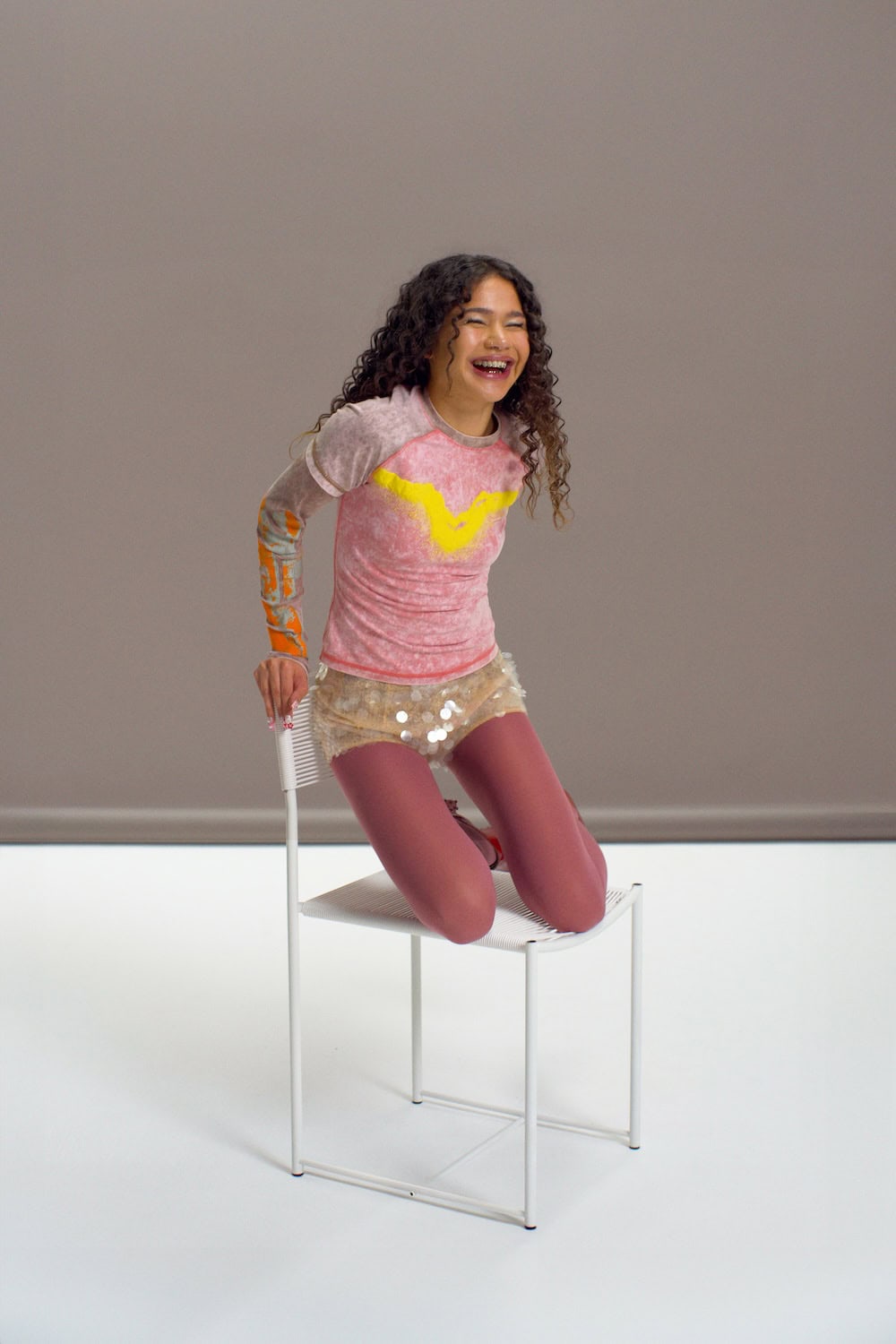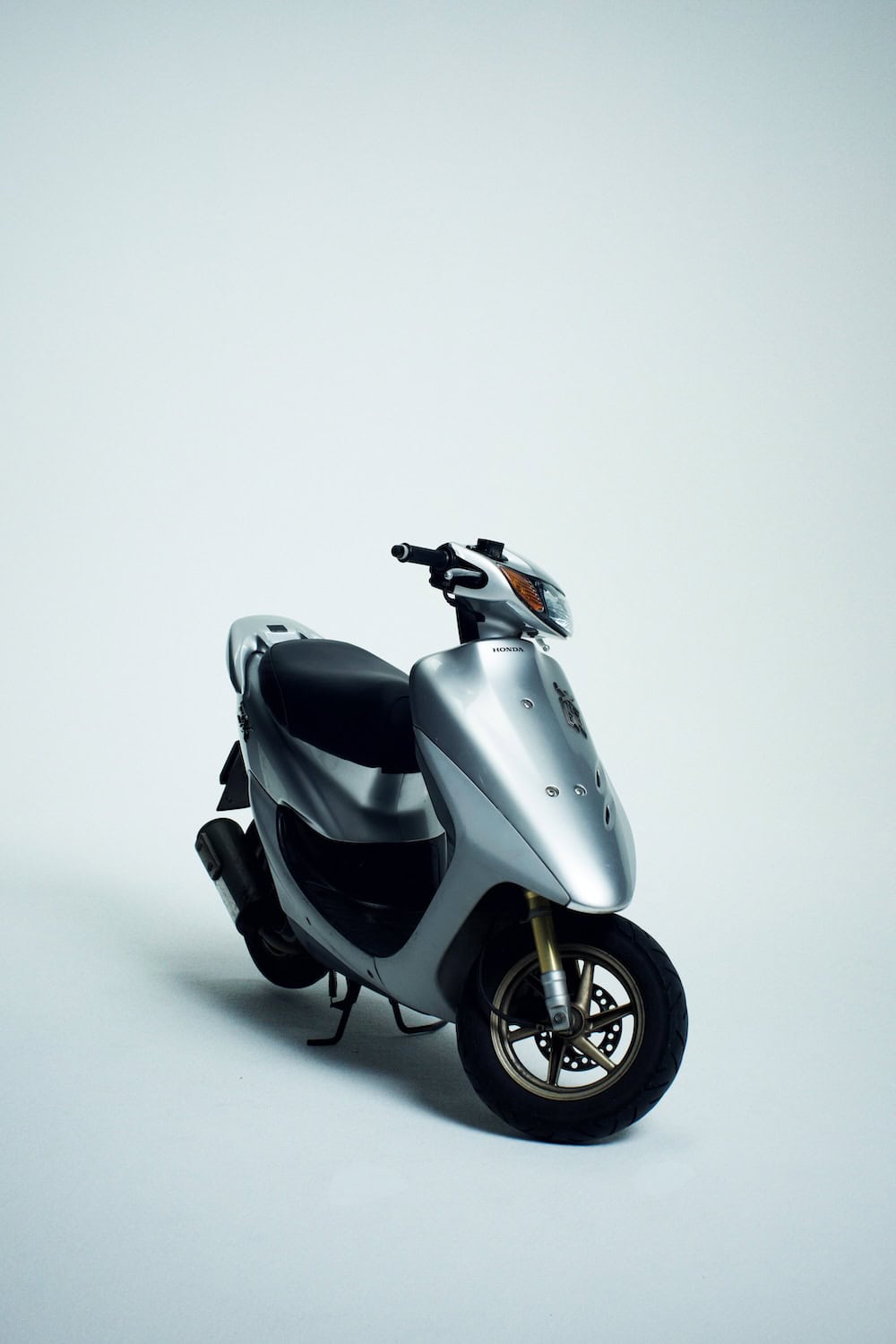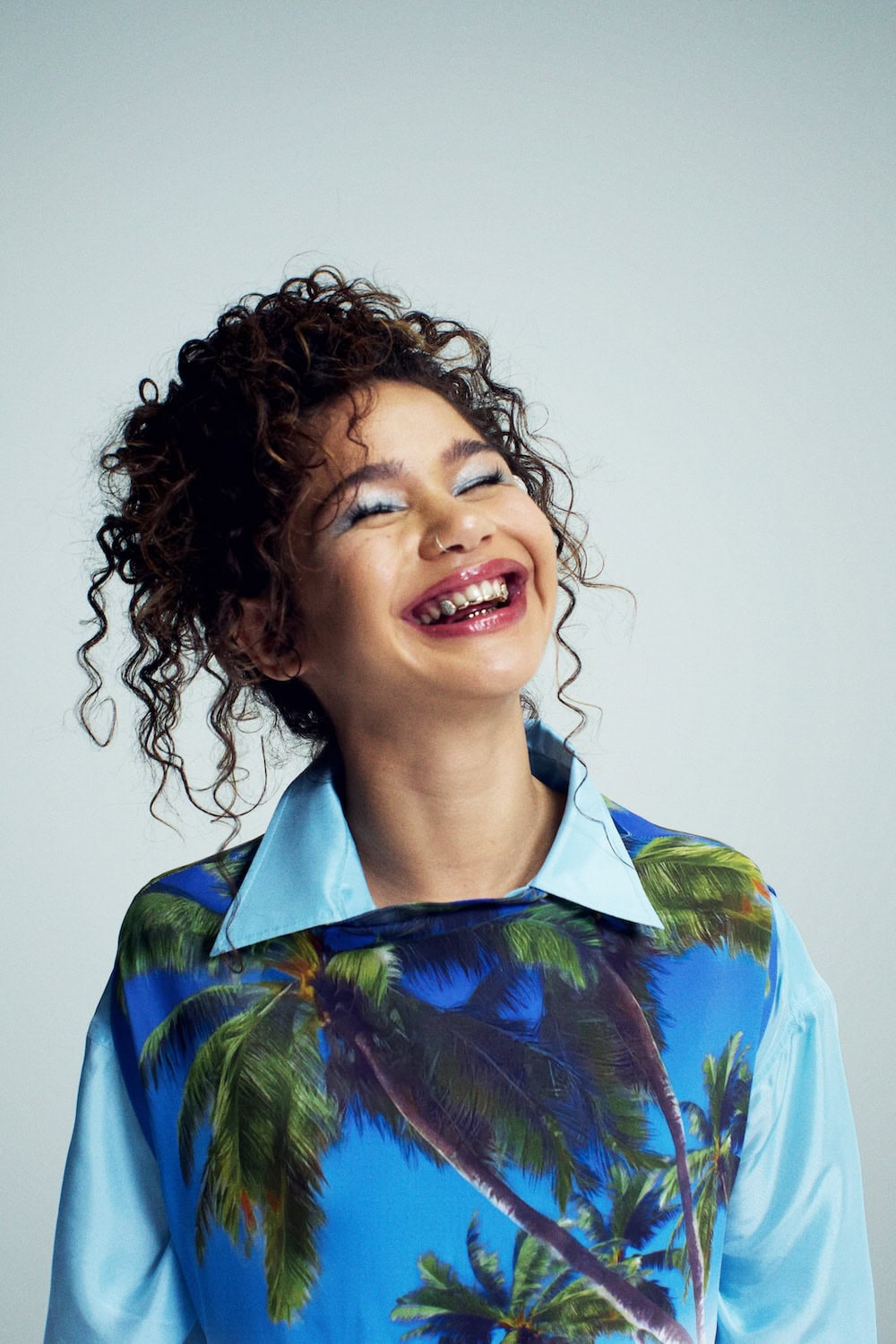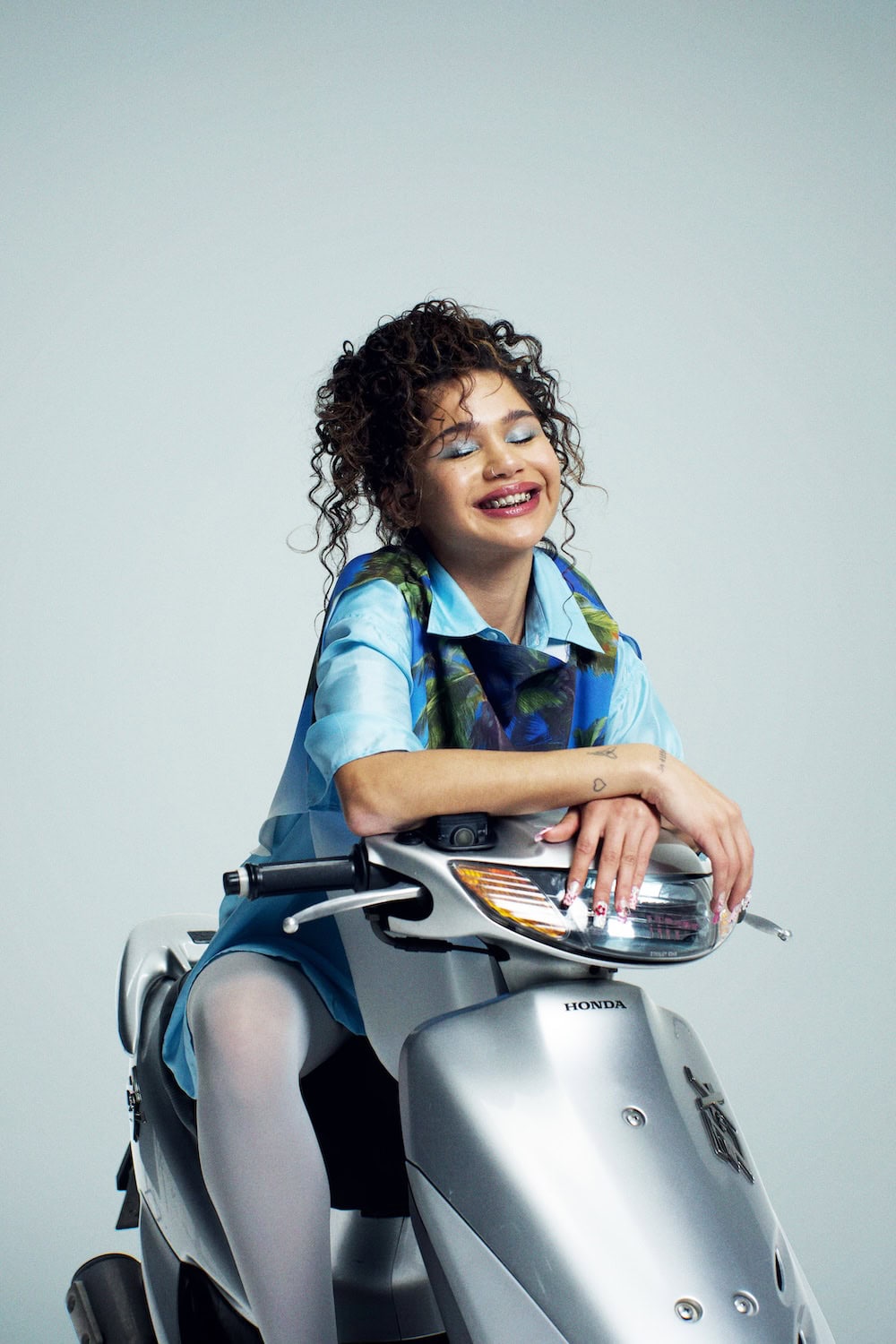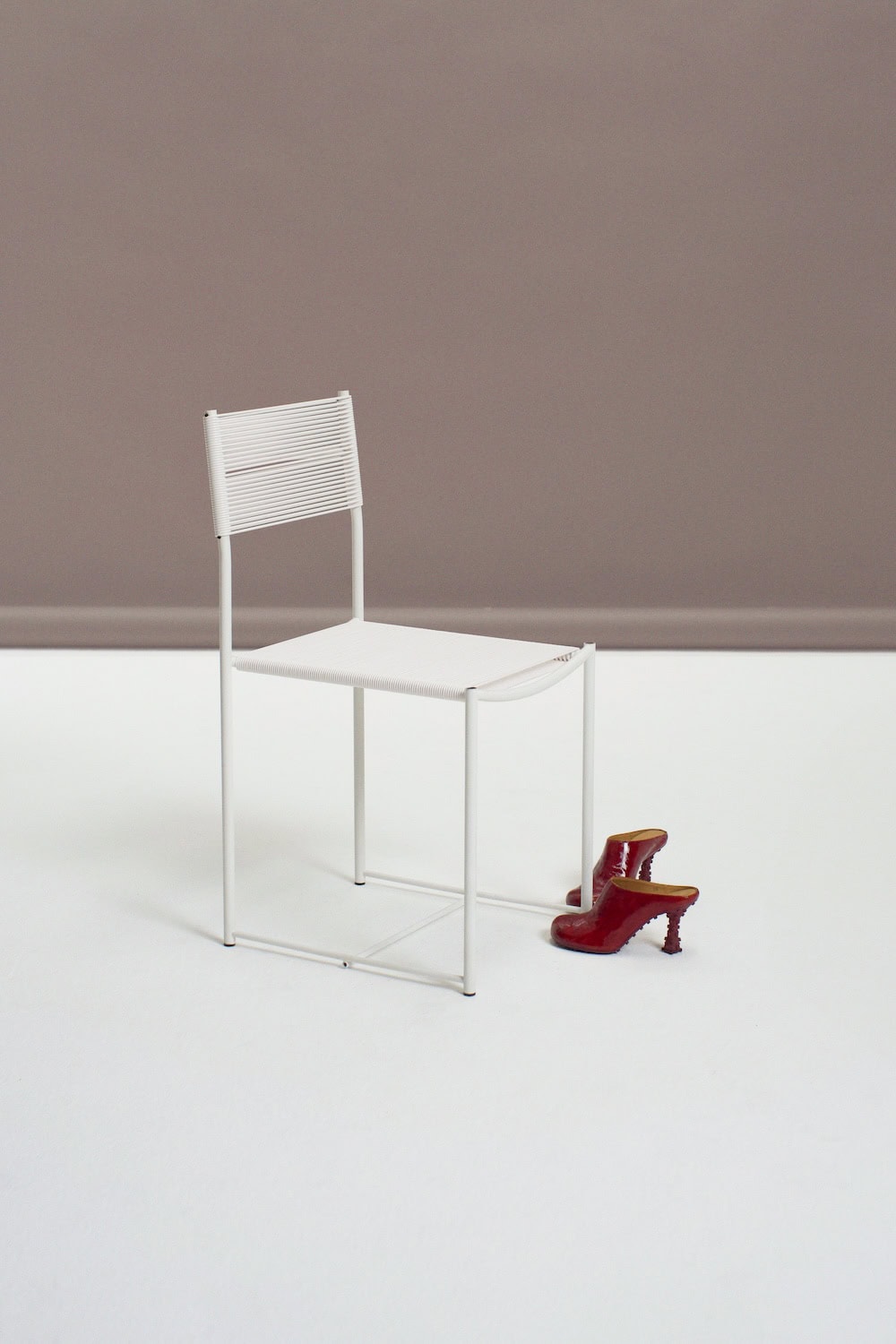Born in Bahia, Brazil and raised in Pisa, Italy, the Italo-Brazilian rapper Lorenzza has recently attracted a large following on her Instagram profile by publishing a series of self-reflective, raw tapes that move between her mother, toxic relationships, and West Side Gun. Now, her first EP, A Lorenzza, is out, finally giving us access to the full-length tracks. Here, we speak about channelling karma, blunt sex talk in female rap, being twenty in a small Italian town, her Brazilian roots, and much more.
Matilde Manicardi: What are the things we can find in Lorenzza’s pockets?
Lorenzza: A lighter; a lip gloss; a holy card my mother gifted me, the image of Nossa Senhora Aparecida, the patron saint of Brazil.
MM: Your lucky charm?
L: I’m not very superstitious, although my name comes from a superstition. My mother was always fond of the name Lorenza, even though she knew it was quite rare in Brazil. One day, while talking about me with a friend of hers, a stranger intruded into the conversation by saying that seven-letter names bring bad luck, suggesting that we change it by removing a letter or changing it completely. In the end, she decided to add a “z”. Besides this anecdote, I believe in luck, but it’s not enough. Like I read somewhere: “Luck is when opportunity meets preparation.”
MM: In your song Karma, you wish the worst on what appears to be a toxic ex. What’s your dream revenge?
L: The one where I’m not the one taking revenge. But that’s life, you know? It’s a series of events. It would be too predictable if I were the one to wrong you. The most beautiful revenge is when everything goes wrong without me doing anything. And then the wheel always turns.
MM: It’s only been a few months since you started posting your music on Instagram, and you’ve already received great attention. The first songs you posted seem to describe your world: your mother, West Side Gun, who made you cold, your pain, the twenties, the haters, Club Dogo, karma. How did it all begin? How does it feel to expose yourself for the first time?
L: The goal was to spread the word, and it worked. Now things are getting more serious. How does it make me feel? Anxious. Before publishing a song, I’m afraid people won’t like it. But it’s going well—I’m glad. Now I’ll have to start paying more attention to everything I do.
MM: I assume the people close to you know what you’re talking about and who you’re referring to in your lyrics. How does that feel?
L: Since I grew up with the habit of keeping everything inside, sharing my feelings sometimes makes me feel naked. It happened that my friends came to me and said, “Fuck, I didn’t know you held all of this inside,” but also, “I’m happy you found the courage to talk about it.”
MM: You often talk about female friendship and loyalty. What are your thoughts on female solidarity? And its limits?
L: I’ve noticed there’s little of it. I’d like to bring more unity among the girls in the scene. I’m someone who supports others. If I appreciate something, I’m always ready to share my thoughts.
MM: There are very few female names in the Italian rap scene, historically and currently. Does this weigh on you?
L: I wish I could have more Italian women rappers to look up to, like in the American rap scene, where you can find more sources of inspiration. But things have been changing, and I hope this is just the beginning.
MM: You grew up in Pisa. What is it like to live your twenties in a small town in Italy?
L: Pisa is nice; it’s a quiet city, but there’s not much to do. There’s a square where people hang out and two clubs. There’s just an issue with lack of opportunities for people, which leads them to not open up and stay close-minded. Those who are born there and don’t leave tend to be closed off; inheriting a harmful behaviour from older generations. This leads to stagnation. That’s why most people all end up wanting to leave small towns.
MM: And you were born in Bahia. How would you describe your relationship with Brazil and its musical tradition?
L: I came to Italy with my mom when I was three. We went straight to Pisa to join my aunt. At home, we speak Portuguese. I’m always in touch with Brazil and keep up with the music that comes out. I live in Italy, but I still feel Brazilian, you know? It’s just that it’s far and expensive, and I can’t go too often. But if it were up to me, I’d go more frequently.
MM: You can choose the lineup for a concert with your favourite artists. Who would you invite?
L: Drake, my love. Then I’d add Nicki Minaj. And Sfera Ebbasta, because I grew up with his music, I feel close to it. Lastly, a Brazilian rapper called TZ da Coronel.
MM: In the history of rap, there has always been a lot of sex talk, and since men have mostly written it, women have appeared in the lyrics as angels or whores, with their bodies objectified. How does it feel to rap about sex as a woman, flipping this misogynistic tradition on its head?
L: It’s definitely a risk because my audience is predominantly male, and many men get annoyed when a woman talks bluntly about sex. I’ve recently paused and took time to read the comments on my latest track, and someone wrote that everything was great except that I used the term “scopare” (Italian slang for “get laid”) because “they don’t like hearing those words from a woman.” It’s absurd. There’s a way to rap about sex that’s just provocative and leaves you with nothing, and there’s a way to do it that makes you think. And I want to do that. I’ll also provoke, but then someone will stop and say, “Okay, you’re right.”
MM: And we need to bring this topic up, desperately.
L: Yeah. This is something that women who write to me really appreciate. One of the things I hear most is that they’re happy someone is giving voice to certain thoughts they rarely heard in lyrics in Italy’s rap scene before.
MM: Your name appears among the artists of Sugar Music label. When will we finally be able to hear your music on Spotify?
LL: I recently signed with Sugar Music; everything started spontaneously. We played some tracks, and they immediately fell in love with the project and its potential. This is just the beginning of a journey, and the first step is the EP that just came out. The project revolves around the idea of dedication, with every track dedicated to someone or something significant to me, like To My Mother and To West Side Gun. Weaving it all together piece by piece. From there, it was easy to decide on the title, A Lorenzza, which means “to Lorenzza”. It’s a dedication to myself, a tribute for making the choice to share my story.
